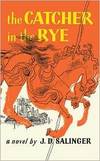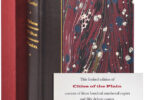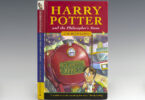I Roll my Eyes at The Catcher in the Rye
Unfortunately, the first thing I think about these days when I hear The Catcher in the Rye is the film Chasing Amy, that barely post-adolescent flick, created by barely post-adolescent filmmaker Kevin Smith, with Ben Affleck playing the main character – named Holden, of course. The next thing I think about is a guy I knew in high school who was one of the most socially awkward people I ever met, and carried a small leather bound copy of that book on his person at all times. His obsession with that novel did not appear to improve his social problems. I guess The Catcher in the Rye is just one of those things that mean so much to a certain type of person, at a certain point in their lives, that it’s almost sacred. Like ABBA, or Blossom. Or Pearl Jam. But I’m certainly not here to mock Pearl Jam. I’m here to mock The Catcher in the Rye, and all it’s very satisfying and entertaining discontent, swearing, and overall hatred of everybody who is not a maladjusted child of wealthy parents who provide very little emotionally to their kids. Maybe I just don’t understand because I’m not a boy. If that’s the case, I feel pretty sorry for boys, especially the ones who are so good at recognizing hypocrisy in others that they just can’t contain themselves, and go out and do all the self destructive things they can find to do.
The Catcher in the Rye is Not a “Coming of Age” Novel
I’m also here to mock the “coming of age tale,” mostly because The Catcher in the Rye is almost always called that, even though it does not really apply. As far as I can tell, Holden Caulfield does not come to anything in the book except a mental hospital, and some vague and slightly creepy conclusions about childhood innocence. The character does not grow, or mature, or begin living any differently. If the story is “coming of age,” then the main character should at least come to some conclusions which affect the maturity of his or her choices and understanding going forward. The book may be very satisfying as a complaint, but nothing is especially resolved or revealed. I did a Google search for “Catcher in the Rye coming of age” and got 14,600 results. Most reviews and synopses of the book start with the sentence “JD Salinger’s coming of age story…”, and the Wikipedia entry starts right out with, “Originally published for adults, it has since become popular with adolescent readers for its themes of teenage angst and alienation.” I sort of hate using that word too – angst, because it’s too easy and therefore very overused. There are other words in the English language, after all, that may be used to describe teenagers and their very sensitive state. How about “discontent,” “malaise,” “disquietude,” or simply “anxiety” (I googled “Catcher in the Rye angst” and got 4,120 results; I am a tireless researcher). I imagine one could write a pretty thorough review of that book without having read it, it’s so embedded in our culture. I did read it. I also read every other JD Salinger work so far published, so I’m qualified to say that it’s his worst work (or least good, at any rate).
Holden Caulfield is Just Not That Impressive
I don’t dislike the book, and just like everybody else, I think it’s incredibly well-written. One of my main criteria for judging the worth of any book, story, song, or other work of art is, “Did it satisfy it’s own purpose,” or “Did it do what it set out to do.” The Catcher in the Rye is extremely successful in that regard. Holden’s voice is natural and real and sympathetic. He’s not a cruel person, and his observations are often very astute, so one feels sympathetic towards him no matter what choices he’s making, and even a bit more intelligent, for having read Holden’s internal monologue and having understood it, and for recognizing the same “phony” behavior that he sees everywhere. It’s just that his observations are not really all that difficult to make. He’s not seeing things in a different or unique way, and he’s definitely not coming to any new conclusions, or addressing any deeper truths. He’s not asking any very interesting questions either. If you want something more subtle, something that contains a deeper understanding of how people relate to each other, and something that gives you a character to really feel for and live vicariously through, please read Raise High the Roof Beam, Carpenters and Seymour: An Introduction (two novellas published in one volume, a la Franny and Zooey). It’s one of the most brilliant pieces of fiction ever published. You want observations on the nature of innocence, obsession, and hypocrisy? You want emotional difficulty and the sense that you are watching someone fall far, far away from the world and those who should care the most? You want to read something with vocabulary that reaches beyond an intelligent 17 year old? That’s your book. Frankly, it’s far more entertaining too. Forget Holden. Where’s your Seymour, Kevin Smith?








One has to admit that the book’s use of vernacular is beguiling. However, I don’t think Salinger intended for it become a Bible for the emotionally retarded or a Holy Text of the culture of narcissism. One of the Great Overrated Books of the 20th century, right up there with ‘Old Man and the Sea.’
I read “The Catcher in the Rye” for the first and only time when I was living (1967) in a very constrictive environment, as a Roman Catholic novice in a novitiate in sylvan, rural New Jersey. (Yes there are such places in N.J. and very pretty they are!) Holden’s sheer gall seemed pretty thrilling compared to the life of obedience and modesty required of a novice. I was a bit furtive regarding this book, which I only read in my own novice’s room, worried that anybody might see me with it. Oh, well, given that another novice had a buck-naked photo of fatty Mama Cass hanging on his room’s wall, I don’t think that I needed to be so secretive!
My brother had a 1951 hard copy of the book. Inside the cover he wrote down the pages with swear words. The book got him to like reading. It’s worth it for that. I’ve still got the book.